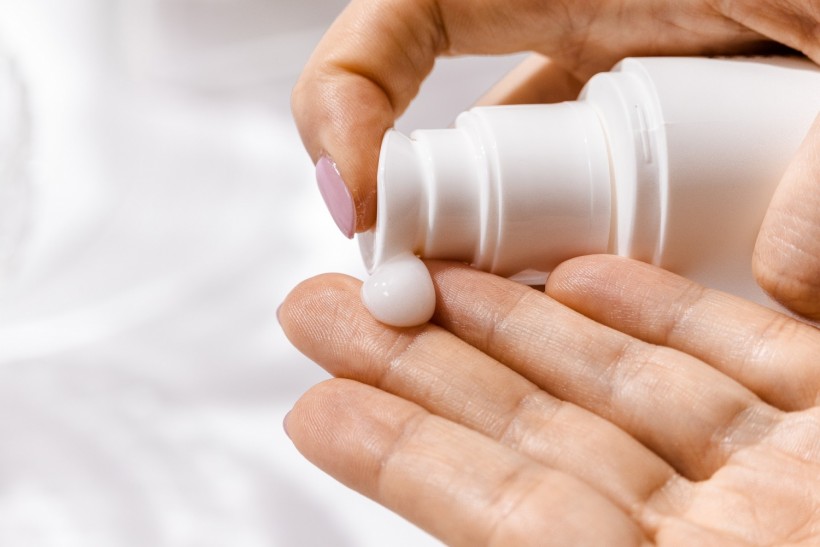A tweet shared by Dr. Avi Bitterman, a dermatologist in Woodmere, New York, has gone viral due to its shocking factor. The post included a photo of a 92-year-old woman showing how SPF impacts a person's skin. The up-close photo came from a case study in the Journal of the European Academy of Dermatology and Venereology.
Viral Twitter Post Features a 92-Year-Old Woman Who Did Not Apply SPF on Her Neck
In the Twitter post, Bitterman noted that the 92-year-old woman had used UV-protective moisturizers on her face for more than 40 years, but not on her neck. The image clearly distinguishes the effect of habitual usage of SPF as well as its non-application on the skin.
Cheek and neck of a 92-year-old female, who used UV-protective moisturizers on her face but not on the neck for 40+ years.https://t.co/Q8wWxY2tDE pic.twitter.com/FBSswmYxt1
— Avi Bitterman, MD (@AviBittMD) September 2, 2022
The unidentified woman applied UV-protective moisturizers on her face but not on her neck for over four decades. Her cheek was visibly smoother compared to her wrinkled neck.
Twitter users commented on the post, and most, if not all, realized the importance of applying SPF to their necks.
"That 'no SPF on neck pic' hit me harder than any D.A.R.E commercial ever did," one commented. Another user thought about the post and added that she put on facial SPF down to the neck for the first time ever.
After seeing the image, another Twitter user stated that the user aggressively applied SPF to the neck.
Aging Research on Rethinking Primary Prevention of Skin Cancer
Christian Posch's research addresses the links between UV exposure, the onset of cancer, and aging. He is the director of dermatology at the Vienna Healthcare Group and a board-certified dermatologist.
He told Newsweek that the sheer number of people who continue to downplay the significance of UV protection startled him. He stated that there are two things that the picture shows. One is solar elastosis, a side effect of long-term UV exposure, which affects the neck; and the other is the effect of UV protection on the cheeks and face.
The picture demonstrates how UV protection is currently the most effective way to prevent various skin cancers and skin aging. But he added that to stop the spread of skin cancer, rejuvenating and repairing the skin are equally essential. He continued that one essential component is to start viewing aging as a controllable biological process.

Cream Lotion Hands Sunscreen Spa
ALSO READ:Give Your Skin the Extra Care It Deserves Using The Best Anti-Aging Moisturizing Cream of 2020
Skin Cancer and SPF
In a survey of 1,000 adults, the American Academy of Dermatology discovered that one-third of the adults were unaware that taking simple precautions, including looking for shade, can reduce the chance of developing skin cancer.
Based on the survey, the likelihood that a respondent understood the link between sun exposure and skin cancer decreased with age. According to more than half of Generation Z and Millenials, a base tan will protect you from sunburns, while 71% of Gen Z respondents think a base tan will protect them from skin cancer.
According to the American Academy of Dermatology Association, skin cancer is the most prevalent type of cancer in the US, affecting one in every five people.
Dermatologist Dr. Ramzi Saad, spokeswoman for The Skin Cancer Foundation, told Newsweek that choosing a broad-spectrum sunscreen with an SPF of at least 15 for daily use and at least 30 for prolonged outdoor activity is crucial for everyday sun protection.
RELATED ARTICLE: Keep your Skin Safe this Labor Day Weekend: All about Sunscreen with Dermatologist Tim Loannides MD
Check out more news and information on Medicine and Health in Science Times.


![Humans Will Go Extinct on Earth in 250 Million Years; Mass Extinction Will Occur Sooner if Burning Fossil Fuels Continues [Study]](https://1721181113.rsc.cdn77.org/data/thumbs/full/53373/89/56/50/40/humans-will-go-extinct-on-earth-in-250-million-years-mass-extinction-will-occur-sooner-if-burning-fossil-fuels-continues-study.jpeg)











